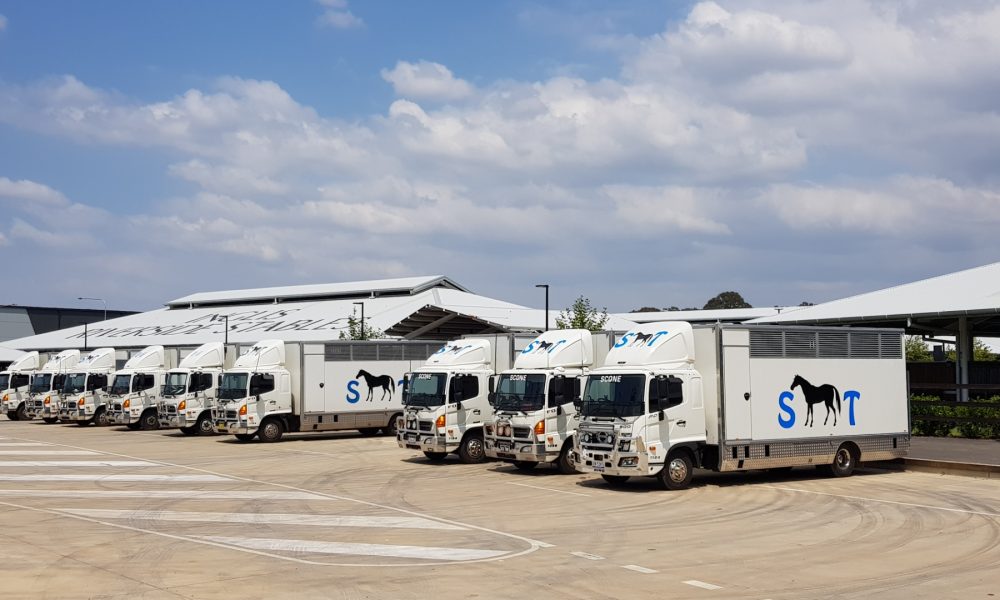Horse movement steps up despite tighter Covid-19 travel restrictions

Scone Equine Transport delivering an average of 200 horses a week in bid to facilitate start of breeding season
With the breeding season officially set to begin in two week’s time, horse movement around the nation has stepped up to it’s usual frenetic pace and there’s now more reliance than ever on commercial transport companies to shift broodmares onto farms for foaling down and coverings.
Despite Victoria and New South Wales remaining fixed in a state-wide lockdown, the transportation of livestock for breeding purposes has continued to be judged an essential industry by government bodies, allowing the thoroughbred covering season to commence under strict protocols.
Scone Equine Transport has doubled its usual workload for this time of year with Covid-19-related travel restrictions making it almost impossible for smaller breeders and farms to use their own vehicles to move stock.
“Coming into the breeding season we are very busy bringing in foals and mares back to the Hunter to foal down and that’s increased our workload,” Scone Equine Transport’s co-owner Tracey Hall told ANZ Bloodstock News.
“Farms that have their own little trucks don’t want to do it and everything now has to go on commercial transport.
“People that usually bring mares for walk-ins that come in their angle floats and get their mare covered can’t do that so easily anymore.
“And Sydney people can’t jump in their car and float and come up here to the Hunter and Victorian and Queensland-based people can’t come over the border without being quarantined, so they now have to use commercial operators.”
Scone Equine Transport, which has a fleet of 11 trucks on the road and employs 15 drivers, is currently moving an average of 200 horses per week throughout Queensland, NSW and Victoria.
“You have got to keep them moving. Mares are heavily pregnant and they have to keep moving. And then there are mares that are lining up to go to stallions and there’s only a certain period of time for them to do that,” Hall added.
“Every truck is full going backwards and forwards and we are putting on extra runs to get them catered for.”
With the influx of thoroughbred stock now needing to be moved on commercial transport, Hall said other horse breeds that they would also usually cater for have had to be pushed down the priority list.
“The paddock work is on the back burner where I have to swap them over for a mare that has to be moving so it’s a juggle between paddock and thoroughbred work at the moment.”
All Scone Equine Transport drivers are now vaccinated against Covid-19 and observe strict protocols when delivering and picking up horses from properties.
Commercial horse transport drivers must also now undergo a Covid-19 test every three days.
“Protocols have been really good because we can get in and around with minimum fuss as long as they (the drivers) wear a mask.”
Thoroughbred Breeders Australia CEO Tom Reilly said his organisation has been engaged in regular conversations with state governments since the outbreak of Covid-19 early last year to ensure that the needs of the industry are met and not hamstrung by travel protocols.
However, he warned that protocols this time around will be stricter than they were last year.
“We are having the same conversation again with the state government and breeders will be able to move stock between states,” Reilly said.
“But because the Delta variant is such a more significant threat there will be more stringent protocols for farms that want to move horses themselves.
“Commercial float companies are well set up to travel between states.”
Reilly said he is currently finalising horse movement protocols with the relevant authorities and hopes to be able to formally advise stakeholders of what they will be in the coming days.
“It’s important to have them signed off as I want to provide some clarity.
“I think most people understand that it’s a difficult situation. People will be able to move horses themselves but they are going to have to get the right permit from each state and abide by protocols and have the right paperwork.
“It’s going to be important for everyone to do the right thing so that we can enjoy the privileges to keep the industry going,” he said.
TBA has produced Covid safe guidelines for farms and a Covid safe travel plan that all breeders can access via its official website.


